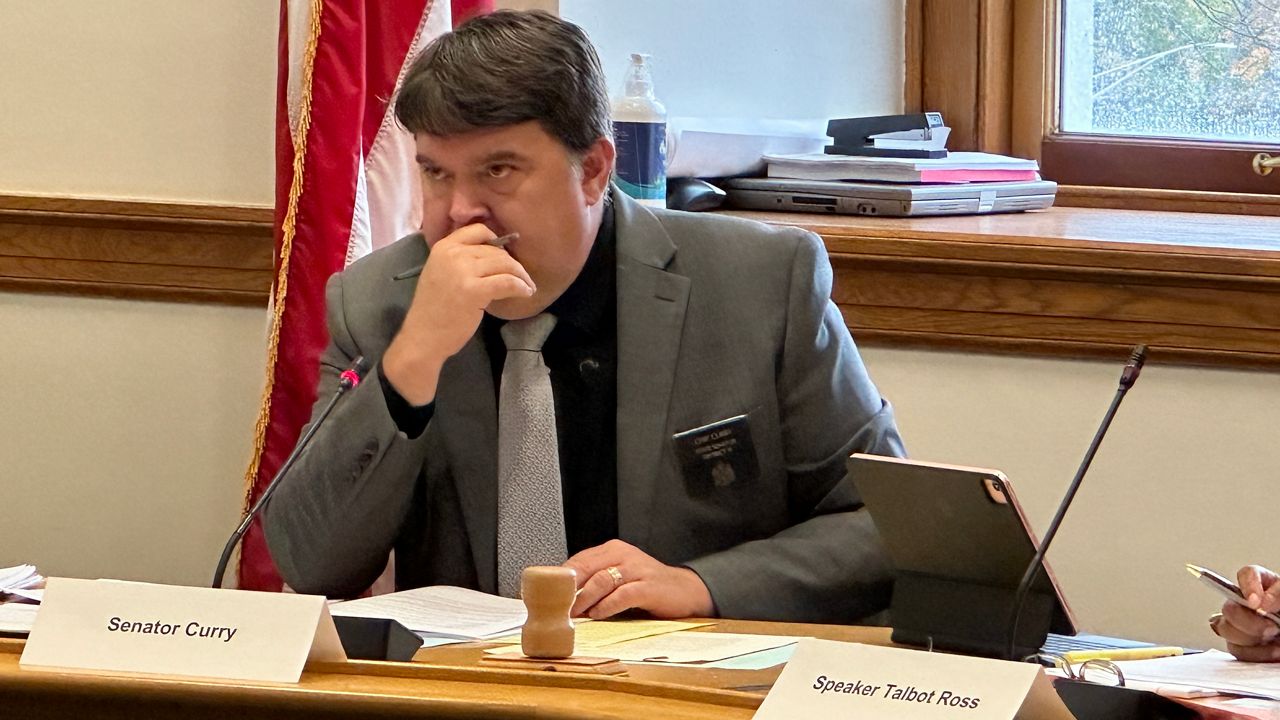The state should fully fund the agency that oversees all emergency medical services in Maine and ensure that everyone has access to help when they need it, a state panel determined Monday.
The Blue Ribbon Commission to Study Emergency Medical Services in the State whittled down its list of potential recommendations in advance of a deadline to finish its work by Dec. 15.
The commission is charged with finding long-term solutions to keep an underfunded system working amid staff shortages and reimbursement rates that don’t cover all the costs.
“The lifeboat for our EMS services needs to be funded by the state of Maine,” Rick Petrie, of North East Mobile Health Services, said.
Petrie said three-quarters of the state agency that oversees EMS is funded by grants that are time-limited. And he said the current $1.2 million in general funds are inadequate.
A majority of the panel agreed, showing their support in a straw vote to call on the governor to include funding for the program in her next budget. But they did not specify an amount, saying they wanted the agency in charge to come up with staffing recommendations.
As it exists today, the state agency is more of a hinderance than a help to local departments, said Auburn Fire Chief Robert Chase.
“I don’t necessarily see Maine EMS as an asset to me as a service provider,” he said. “But more of a regulatory hinderance that causes challenges for us. A big part of that is a lack of staff that can support service delivery providers. They just don’t have the ability to both tell us what to do and help us do that.”
Earlier this year, lawmakers approved $31 million in spending to help EMS providers, particularly those in rural Maine, that are struggling to survive.
That $31 million will be spread over two programs, with $12 million in stabilization grants to keep services from failing and $18 million for sustainability. An additional $860,000 is for four positions in state government to help run the programs.
Some commission members expressed frustration Monday that the money has not already started going out.
“It makes me struggle to come up with new recommendations when the recommendations and process we already put in place haven’t gone anywhere,” said Rep. Sue Salisbury (D-Westbrook). “Some of the fixes we’ve put in place are languishing.”
Another wrinkle facing the state agency and the commission is that State EMS Director Sam Hurley recently accepted a new job out of state. His deputy, Anthony Roberts, is now serving on the commission, but could not provide dates for when the funds will be distributed.
Originally, the money was to go out by the end of October or early November.
“I hate to give any type of false hope,” he said, noting that the money is currently undergoing review by the state Division of Procurement Services, which oversees contracts and master agreements.
Sen. Chip Curry (D-Belfast) said he is concerned that the state doesn’t share his sense of urgency when it comes to saving local EMS providers who are in trouble.
“At this meeting it has felt very much like our agencies are at threat of closing,” he said. “We’ve got vulnerable organizations and Maine EMS was really looking at 2035 rather than the immediate prevention of loss and closure of facilities.”
The commission is using a report issued last year as a jumping off point for making progress ahead of the legislative session that begins in January.
The commission’s 2022 report described EMS providers in the state as “at the edge of a cliff, or over it” particularly in rural Maine.
“Current subsidies, especially volunteerism, are declining and revealing the true cost of EMS, and the state must step in to ensure that EMS does not disappear in parts of this state,” according to the report.
Over the last 50 years, EMS has evolved in Maine to become a mix of services provided by cities, towns and private entities.
The vast majority of the approximately 275 licensed services are connected to fire departments (173), with 41 nonprofit, community based services, 35 independent municipal services, 11 private services and 11 hospital based services, according to the 2022 report.
And although there were 288,273 calls for EMS in 2021, most services in the state have a low call volume. Sixty-four percent respond to fewer than 500 calls per year and 56% averaged less than one call per day.
Throughout Monday’s meeting, Bill Montejo of the Maine Department of Health and Human Services urged the commission to find a way to focus on expanding EMS to all parts of the state.
“Part of the recommendation is that this board should not stop and there should still be some work for how do we address getting a service where it currently doesn’t exist, where those deserts exist,” he said.



